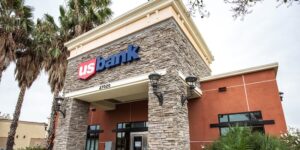 With the ongoing pandemic on our hands, many financial institutes and banks are doing their best to help. These financial institutes are improving their banking services to fit the ever-changing needs of their clients during COVID-19. Furthermore, many banks and other organizations are trying to provide the right support for financial guidance and giving updated information.
With the ongoing pandemic on our hands, many financial institutes and banks are doing their best to help. These financial institutes are improving their banking services to fit the ever-changing needs of their clients during COVID-19. Furthermore, many banks and other organizations are trying to provide the right support for financial guidance and giving updated information.
Read below to see the different things banks are doing to help their customers during the coronavirus situation.
 |
 |
Mortgage Relief
There are plenty of people that have been unemployed due to COVID-19 and are worried about mortgage bills. Thankfully, several banks and the TIAA have a temporary payment forbearance for monthly mortgage and home equity line of credit.
Additionally, if you have home loans in the process, you’ll be able to get some aid on this as well. In other words, you will not have to worry about paying for your mortgage or home equity for a little while until further notice.
Community Assistance
Lots of banks are working on giving more back towards their communities now more than ever. With Truist for example, they created the Truist Cares initiative that has about $25 million in pledged support. This initiative will provide money for basic necessities like medical supplies and financial relief.
Plus, the USAA and the USAA Foundation have about $2.3 million for nonprofits in the country to help with COVID-19. This money will go towards paying for food and emergency financial help for military families. Additionally, it will also include care packages for deployed military and will help design practices to responding to this pandemic. Many banks like USAA have a deferral for minimum payments for no more than 3 months as well.
Furthermore, HSBC is also helping by investing more towards their communities with different activities. They have a $25 million donation fund in place to help first responders, food necessities, and protection for weaker global communities.
Business Support
For direct help with financial relief, CIBC has come out with details on how they plan to assist their clients. With loan payment deferrals for people that are financially unstable for no more than 4 monthly payments. The credit bureau will not have an impact towards small businesses.
Plus, their existing customers will be able to sign up for an economic hardship loan to help them out. CIBC is cooperating with commercial clients individually to help provide financial guidance.
Student Loan Relief
Fortunately, Salle Mae has a student loan payment suspension in order for no more than 3 months. This will not damage your credit for people who are financially struggling during COVID. Additionally, they even have help for student loan rates and tweaking or terms. In other words, if you’re a student with loans, this will definitely come in handy during this corona virus outbreak.
No Early Withdrawal Fees
Plenty of financial institutes such as: Citibank, BBVA, and BMO Harris are having their early withdrawal penalties waived. This goes for certificate of deposit (CD) withdrawals only. Furthermore, it will let customers use their assets available to financially help them.
Fraud Protection
Some banks like Capital One have a wealth of resources tab on their website for customers and businesses associated with fraud prevention. This fraud prevention will be connected with any and all possible Corona virus scams.
Consumer Loam Deferral Programs
Lots of financial institutes have consumer loan deferral programs in place to help their clients through this pandemic. Additionally, BMO Harris will offer this program for their customers for no more than 3 months.
No Transaction or Software Fees
Many banks are waiving their consumer and business banking charges to help them during COVID-19. For example, U.S. Bank is waving transaction fees on Zelle and decreasing rates for small-business loans and lines of credit. This is to help smaller businesses put their business online rather than in person.
Additionally, it will waive monthly software and setup charges for the Converge or Talech e-commerce tools. This will last all throughout September 2020.
Resources & Accurate Information on COVID-19
Banks like: Chase, Wells Fargo, and U.S. Bank all have updated resource webpages that show how they’re helping their clients through the pandemic. With Chase, their resource page shows a descriptive list of assistance programs in place for consumers and businesses. Additionally, it will have information on: stimulus payments, government aid, etc.
Fortunately, business customers will get their own resource page better suited for them. This will provide: business resources, articles, webinars, and more to help maintain their businesses.
Auto Loan Deferment
With Ally’s auto loan customers, they are allowed to defer payment for no more than 120 days. This includes no late fees, but finance charges will accrue. For new auto customers, they have the choice to defer the first payment for up to 90 days.
Video Help Guides
Customers of Bank of America will be given an informative video for small business that helps them with financial guidance. Additionally, this includes government programs and other sources that might offer extra funds.
Advances on Stimulus Checks
With Chime, they jumped in right away to help customers when advances were announced. This online bank showed how much they care by depositing money into customer accounts before their stimulus check came in.
Faster Money Movement
BankMobile is an online bank that maintains their attention on getting their customers payment faster. Additionally, this includes help with rapid deposit of stimulus money. It even assists people and lets them get their money safely.
Check Cashing for Noncustomers
Banks like Wells Fargo and PNC are allowing noncustomers to get access to no-fee check-cashing services. This is for government-issued stimulus checks only.
Helping Small Businesses
Lots of banks work with the Small Business Administration (SBA) and are lenders as well. This way, they are able to help with programs that work with the COVID-19 Aid, Relief and Economic Stability (CARES) act. It assists small businesses with the money they require to pay their employees and keep working.
Additionally, Union Bank has partnered with Bankers Small Business Community Development Corp. of California to work on a loan program. This will help improve the decrease of cash flow for small American businesses. This assistance is available for businesses that cannot get any government financial help.
Increasing Banking Accessibility
Many banks are easier to access now that there are more options to reach them available. You’ll be able to use: mobile, voice, online platforms, phone banking, drive-up, or walk-in ATMs.
One-on-One Consultations & Personal Help
Banks like: Wells Fargo, CIT Bank, Union Bank, Capital One, Discover, etc are offering 24.7 consultations. Just call and ask for a one-on-one consultation or personal assistance. Additionally, Zions Bank will reach out to their customers that’s affected by COVID directly.
Full Stimulus Check Access for People with Negative Balances
USAA makes sure that customers that either: have an account with a positive or negative balance, or closed accounts get access to their stimulus check.
Public Health Support
Additionally, BBVA is helping out by assisting health workers as well. They have a new goal to procure at least $50,000 in necessities. Furthermore, they want to give public health support for: nonprofit partners which will include: gloves, hand sanitizer, and masks. It will be given out throughout the months from their existing partners.
Conclusion
The Coronavirus outbreak has done a lot of damage to us in many ways. With that in mind, financial institutions have decided to step in and help out in any way they can. Lastly, there are many solutions, programs, and offers available to anyone that’s struggling financially during this pandemic.


